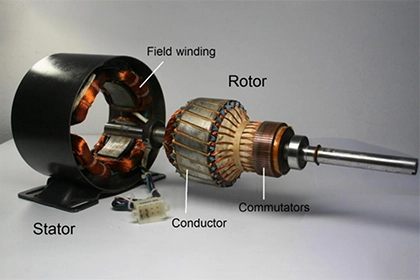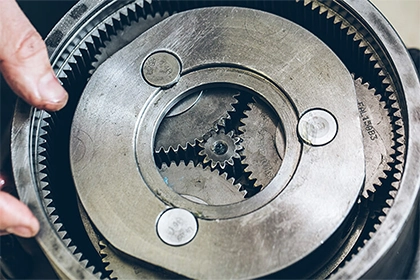
Which motor is more powerful, AC or DC?
DC motors and AC motors are suitable for different applications, and they can both demonstrate their own advantages according to application requirements.
The debate surrounding the power capabilities of ACand DCmotors has been a topic of interest and contention across various industries. The power of a motor is a crucial consideration in various applications, ranging from industrial machinery to automotive systems. When comparing AC (alternating current) and DC (direct current) motors, determining which one is more powerful requires a comprehensive understanding of their characteristics and performance. In this article, we will explore the power aspects of both AC and DC motors, examining their strengths and limitations.
I. Understanding Power in Motors
Before delving into a direct comparison, it's essential to establish a clear understanding of what constitutes "power" when referring to electric motors. The power of a motor typically refers to its ability to convert electrical energy into mechanical energy, thereby driving a particular application or machine. It is typically measured in watts (W) or kilowatts (kW) and represents the motor's ability to generate or deliver mechanical output.

Power Factors
When evaluating the power of motors, it's essential to consider two significant factors:
- Mechanical Power: Mechanical power refers to the actual output power produced by the motor. It is the power available at the motor's output shaft and is commonly expressed in horsepower (HP) or kilowatts (kW).
- Electrical Power: Electrical power refers to the power consumed by the motor from the electrical source. It is determined by the voltage and current supplied to the motor and is expressed in watts (W) or kilowatts (kW).
II. Power Comparison
To determine which motor type is more powerful, we need to evaluate their characteristics and performance in terms of mechanical and electrical power.
DC motors are known for their simplicity, reliability, and ease of speed control. These motors operate using unidirectional current flow, where the magnetic field within the motor remains constant, resulting in predictable torque output. DC motors can deliver high starting torque, making them well-suited for applications requiring substantial initial rotational force.
Power Characteristics of DC Motors
The power output of DC motors is inherently consistent, offering reliable torque delivery across a wide range of speeds. This predictability makes DC motors suitable for precision applications where maintaining a specific speed or torque level is critical.
Limitations of DC Motors
While DC motors excel in providing consistent torque, they face limitations in terms of maintenance and overall longevity. Additionally, the need for periodic brush replacement in brushed DC motors can impact their long-term performance and reliability.
AC motors have gained prominence due to their superior efficiency, ease of maintenance, and robustness. These motors rely on the alternating flow of current to generate a rotating magnetic field, which drives the rotor and subsequently produces mechanical motion.
Power Characteristics of AC Motors
AC motors are renowned for their efficiency and adaptability to varying load conditions. Unlike DC motors, many types of AC motors, such as induction motors, offer near-constant speed operation across different loads, making them highly versatile for a wide array of industrial and commercial applications.
Limitations of AC Motors
One inherent challenge with traditional AC motors is their limited speed control compared to DC motors. However, advancements in power electronics and motor control technologies have mitigated this limitation, enabling precise speed and torque regulation in modern AC motor systems.
III. Comparative Analysis
When comparing the power of AC and DC motors, it becomes evident that both types exhibit distinct advantages based on the specific requirements of the application.
Comparing Power Output
To compare the power output of AC and DC motors, we need to consider several factors. One important factor is the amount of current the motor can handle. For a given voltage, a motor's power output can be calculated using the formula P = V x I x cos(θ), where P is power, V is voltage, I is current, and cos(θ) is the power factor.
Torque
In terms of torque delivery, DC motors often outperform AC motors, especially at low speeds and during initial acceleration. This characteristic makes DC motors more suitable for applications necessitating high starting torque, such as conveyors and certain types of industrial machinery.
Speed Control
DC motors offer superior speed control capabilities, allowing for precise adjustments across a broad range of speeds. In contrast, AC motors historically faced limitations in speed control, but with the integration of advanced variable frequency drives (VFDs), modern AC motor systems now rival DC motors in terms of speed manipulation and control.
Efficiency and Maintenance
AC motors generally exhibit higher operational efficiency and require less maintenance compared to DC motors, particularly those with brushes. The robustness and longevity of AC motors make them favorable choices for continuous-duty applications and environments where minimal downtime is paramount.



Leave a Comment